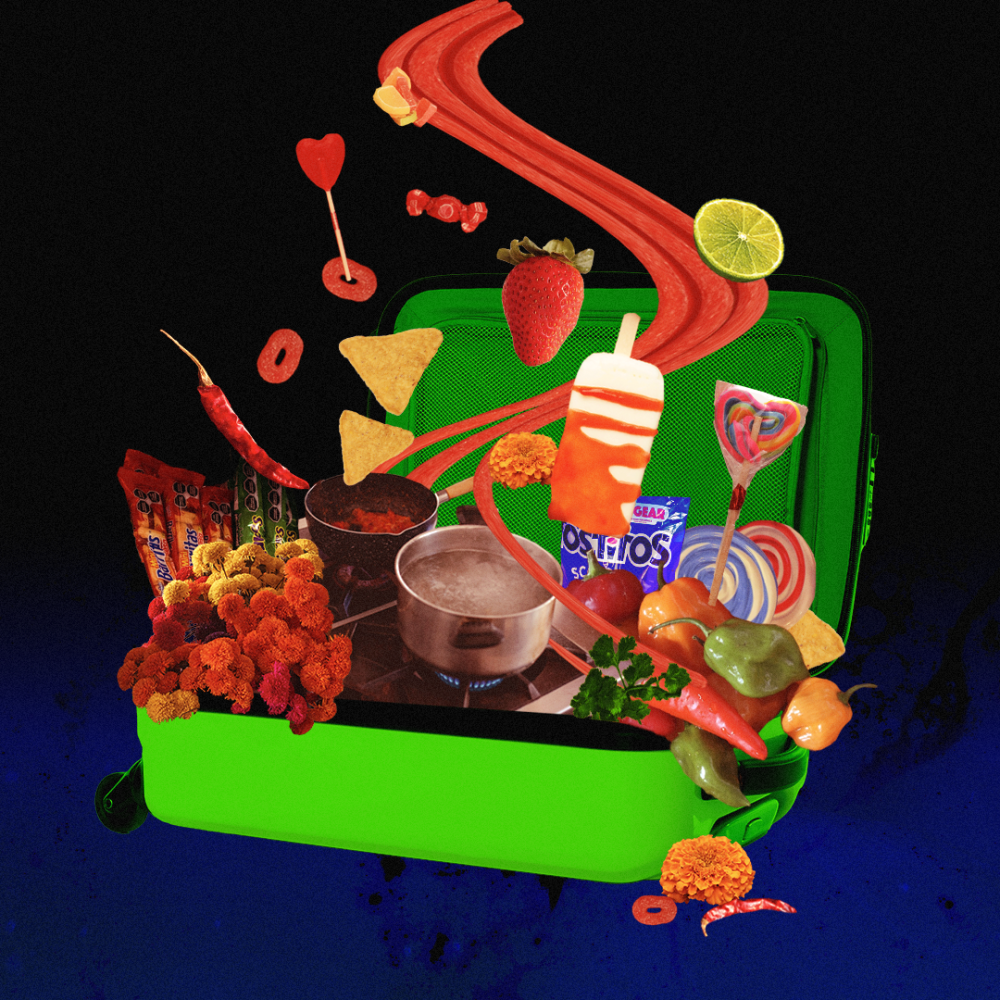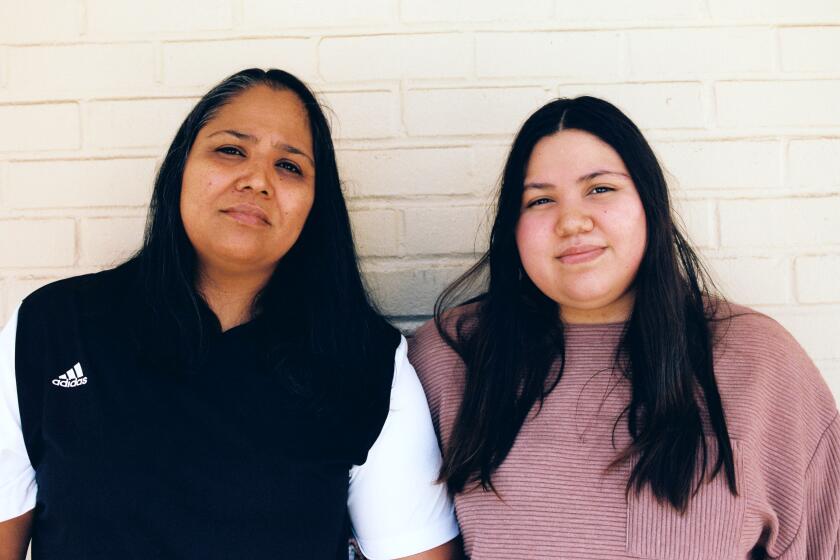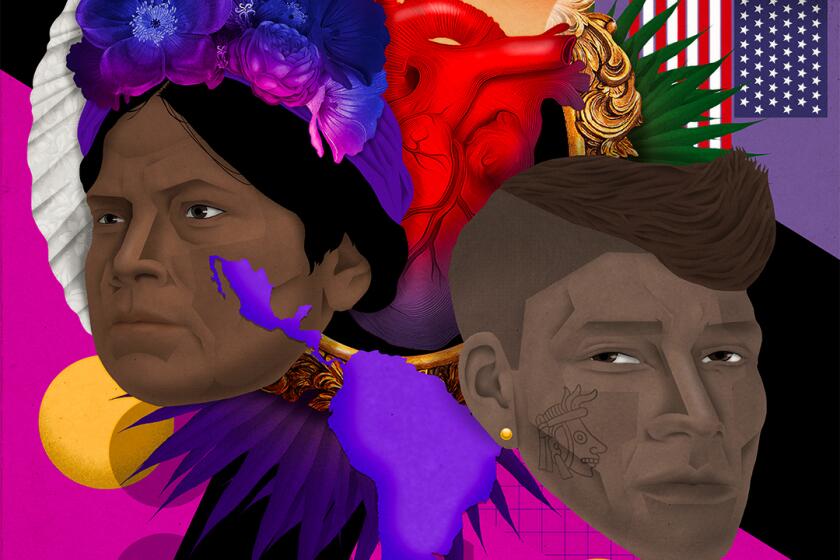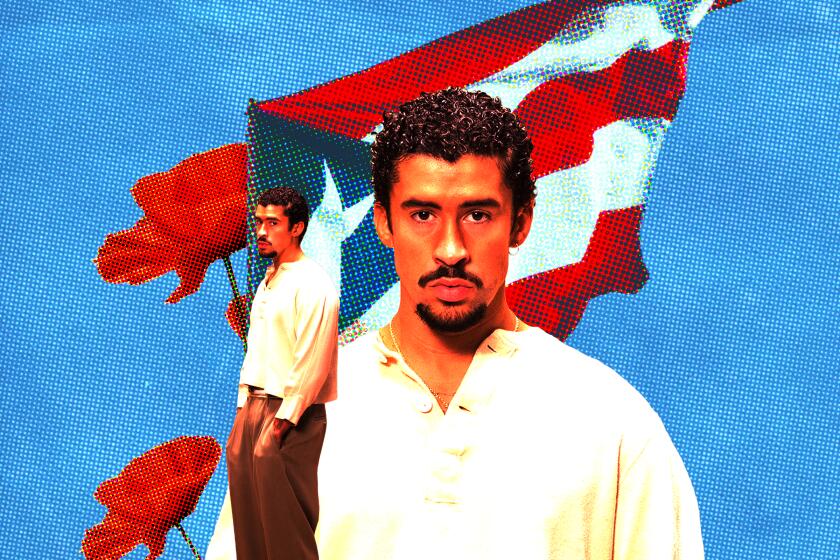
It’s hard to think of a scenario in which being overprepared could be a bad thing.
But here’s one: You’re in a foreign country, you have the vocabulary of a 5-year-old in the country’s language and your flight boards in about an hour. The scale at the ticket counter says that your luggage — two suitcases and a broken carry-on that you’ve been lugging from bus to train station to airport — is about 20 pounds over the limit.
In this moment, being overprepared felt more like a curse than a blessing. I had everything I needed and then some, secured inside three suitcases.
The truth is, my flight from Paris to San Diego after a semester of studying abroad was a long time coming — seven months, give or take. I had accumulated pounds of miscellaneous items (clothes, food, shoes, souvenirs) to fill the void of the places, things and people I had left back home months before.
Toxic gratitude or ‘Si Dios Quiere Syndrome’ is the concept that Latinos are too content with just receiving scraps instead of demanding what they deserve.
As a Mexican American 20-something living in a different country without knowing anyone, retail therapy was a way to cure the culture shock and solitude. But even that got old. The shops at Champs-Élysées only distracted from the longing for my culture for so long.
The effects of being away from home can creep up on you. And while you can bring along a select amount of memorabilia and tokens of comfort, some things are just impossible to fit into a suitcase.
If I could, I would take these things with me everywhere I go, just to feel an inch closer to home.
Una dulcería
On Valentine’s Day during my year abroad, my mom flew to France to cure my homesickness, bringing a bag of my favorite Mexican treats along with her. Pica Fresas, Skwinkles, chamoy, Takis and Tostitos, paired with her warmth and ability to speak Spanish with me, cured all.
A new generation of Latinos is having difficult conversations with their parents on topics like mental health and therapy that have often been ignored.
Dulcerías are more than candy shops — they’re a recollection of your childhood birthday parties where piñatas were filled to the brim with treats and your biggest worry was gathering all of the spicy candy within sight.
La fuerza y ética de trabajo mi madre
Single mothers often are left with the responsibility of having to provide for their families. Migrating from Mexico to the United States is hard enough. Adding children to the mix? Now, that should qualify many of the single mothers across the country — including my own — as saints.
For years, early mornings were spent crossing the border from Tijuana to San Diego, watching my mother work around the clock while my two brothers and I were at school. When we finally moved to San Diego, forcing my mother to leave her career as a doctor behind in Mexico, her work ethic only became stronger as she decided to go back to school to make a decent living for us.
‘I was ashamed to be from Mexico but profoundly proud to be born in Oaxaca. Until that night in Miami.’
This level of hard work is not found everywhere. Countries with large populations of immigrants … get it. They get the sacrifices, the long days and the uphill battle for a better life.
El sazón de mi abuela
I have a memory from my time abroad of my Mexican roommate cooking beans for lunch. The aroma of pinto beans simmering in a pot with onions and tomatoes reminded me of my late abuelita Martha.
She worked wonders in her bubble-gum-pink kitchen in Tijuana, often feeding the grandkids her specialties: gelatina de fresa, arroz con leche and other delicacies. Mid-semester abroad, I got a phone call from my brother saying she had died.
Seeing Walter Mercado memorabilia being sold at the mall in Puerto Rico makes you think about what happens to queer icons.
There aren’t enough recipes in the world to replicate the magic she brought to the kitchen. But if there were, they’d be the first items I’d tuck away in my carry-on.
El respeto
This one transcends Latinidad. It was one of the first rules we ever learned in school. A song was even written about it.
Two syllables and all women should be on the receiving end of it: respect. Our people can feel when it’s not being given, and we will call you out for it.
Los Angeles poet Yesika Salgado curates the first De Los Latino poetry series where poets explore the theme of belonging.
We know to ask for permission, not forgiveness, and most important, to honor people’s personal space and boundaries. Although the latter is a generational work in progress, respect has always been at the forefront of our culture.
Roxana Becerril is an independent Mexican American journalist covering stories spanning across lifestyle, travel and Latino verticals. Her words have been published by the San Diego Union-Tribune, the San Diego Union-Tribune en Español, Eater, San Diego Magazine and other publications. Becerril earned her degree in journalism at San Diego State University and at the French university Sciences Po.
More to Read
The Latinx experience chronicled
Get the Latinx Files newsletter for stories that capture the multitudes within our communities.
You may occasionally receive promotional content from the Los Angeles Times.












